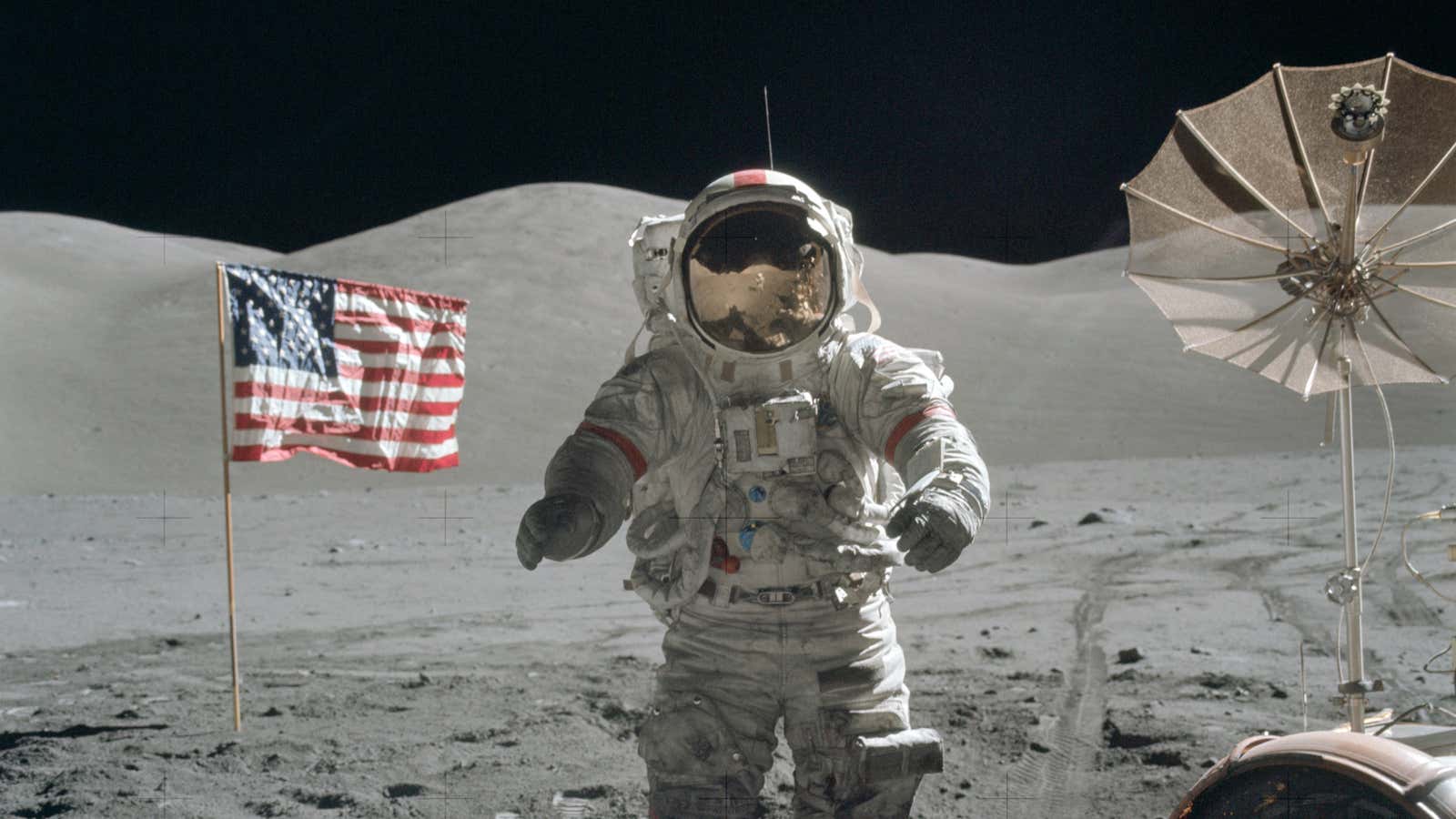There are two versions of the Sputnik story. The one you likely know is that the US was caught by surprise when it found the Soviets had succeeded at launching an artificial satellite on Oct. 4, 1957. Within months, Americans made a series of investments, including the creation of NASA, to catch up and eventually beat the Soviets in the space race. The upshot: even though Soviets breached space first, a little more than 10 years later, it was Americans who were the first (and still only) humans on the moon.
The other story is more complicated. The US government’s reaction to Sputnik’s launch was subdued. Its spy planes had been monitoring Soviet developments, and it’s likely they knew a launch was imminent. “So far as the satellite itself is concerned, that does not raise my apprehensions—not one iota,” declared Dwight Eisenhower, US president at the time.
Even though Eisenhower had publicly declared that Americans were working towards launching small satellites two years earlier, in 1955, his administration was worried that going first would expose the country’s advanced military rockets to the Soviets. That’s why, two months after Sputnik, on Dec. 6, 1957, the first American attempt to launch a satellite used the non-military Vanguard rocket.
But you know about the first story, because it’s the narrative that won. Sputnik caused hysteria among Americans, who had relaxed into believing that they were technologically superior to the communists. If a Soviet satellite could fly over US skies, then surely Soviet nuclear missiles could unleash fury on US soil.
To make matters worse, the Vanguard launch was a failure and it was watched on televisions across the country. To the American public, and their representatives in the US congress, it seemed they were losing to the Soviets, and so far behind that they might never be able to catch up.
Moscow understood the power of using science and technology for propaganda, and wielded it effectively with Sputnik. But Washington was not going to take it lying down. Apart from the creation of NASA, Eisenhower also created the Advanced Research Projects Agency (ARPA) to specifically ensure there would be no more technological surprises, and congress passed the National Defense Education Act to overhaul the country’s public school science curricula and get more Americans to attend college.
Over the next decade, the country poured money into beating the Soviets in space, edging out ahead in the mid-1960s. Consider that nearly 5% of the country’s budget went to NASA alone at the space agency’s peak.
To most readers today, the word “propaganda” is a pejorative. In its pure sense, however, the term simply means “to advance a cause.” The US may not have as strong an adversary in Russia today as it did in the Soviets during the Cold War, but American politicians and government agencies continue to use science and technology for propaganda.
For instance, NASA’s dwindling coffers have forced it become more innovative in communicating the importance of its work and seek more funding. Through giving voice to its rovers, NASA has become adept at winning the internet. Or when vice president Mike Pence wants to drive home his boss’s motto to “make America great again” by promising, in a speech on Oct. 5, to send Americans “back to moon” and gain space leadership “once again.”
The US, though, is already a leader in space by a big margin. What it, and the world, really needs is a Sputnik moment for terrestrial problems. As Earth tumbles towards the precipice of catastrophic climate change, we need to find an adversary in global warming that can only be beaten through working together. Just like Americans felt the urgency of needing to deal with the nuclear threat from the Soviets. The world needs to fear for the generations to come if we aren’t able to do anything to mitigate global warming. As the Soviets and later the US taught us, the power of propaganda can be effective if we are ready to wield it.
